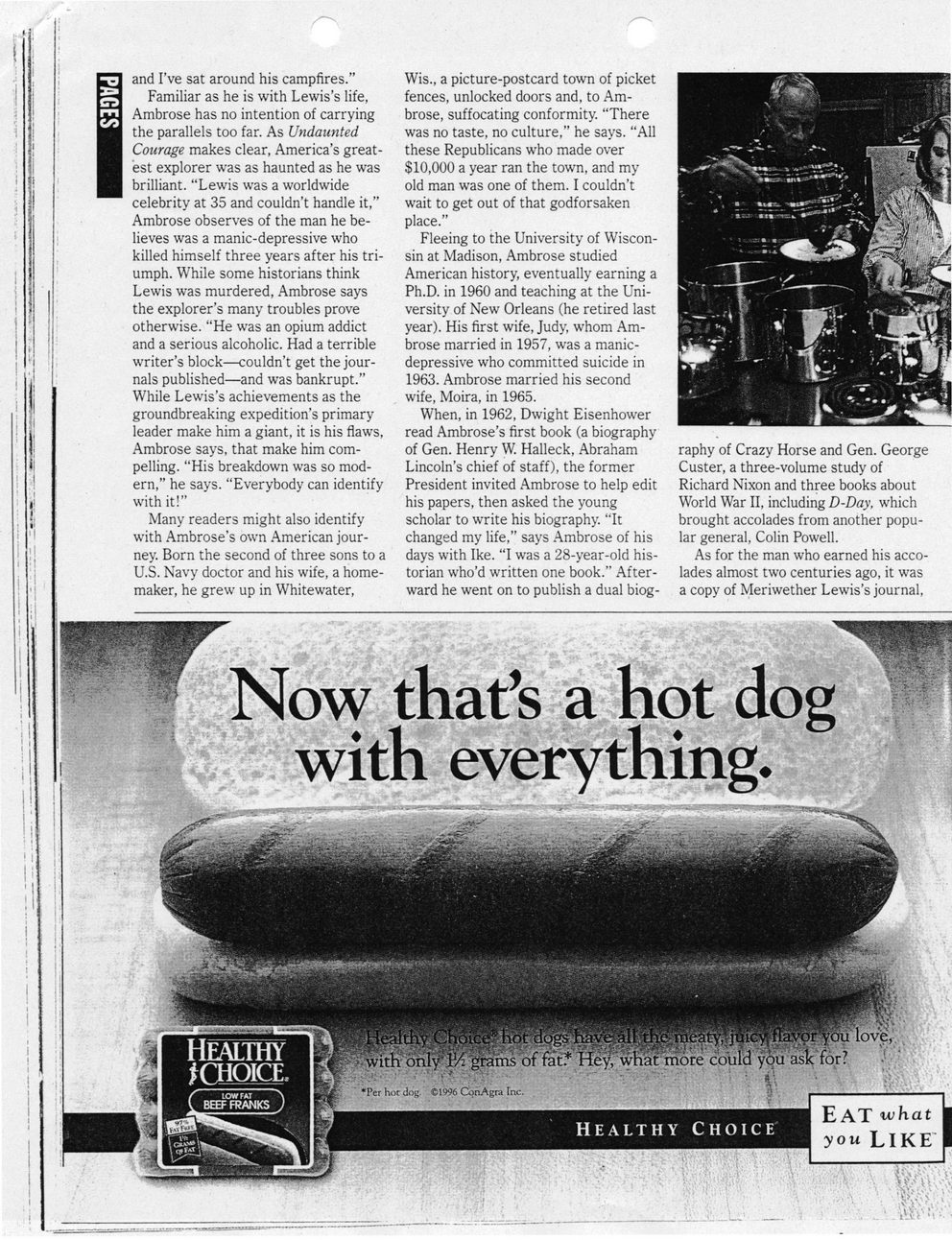This text was obtained via automated optical character recognition.
It has not been edited and may therefore contain several errors.
and I?ve sat around his campfires.? Familiar as he is with Lewis?s life, Ambrose has no intention of carrying the parallels too far. As Undaunted Courage makes clear, America?s greatest explorer was as haunted as he was brilliant. ?Lewis was a worldwide celebrity at 35 and couldn?t handle it,? Ambrose observes of the man he believes was a manic-depressive who killed himself three years after his triumph. While some historians think Lewis was murdered, Ambrose says the explorer?s many troubles prove otherwise. ?He was an opium addict and a serious alcoholic. Had a terrible writer?s block?couldn?t get the journals published?and was bankrupt.? While Lewis?s achievements as the groundbreaking expedition?s primary leader make him a giant, it is his flaws, Ambrose says, that make him compelling. ?His breakdown was so modern,? he says. ?Everybody can identify with it!? Many readers might also identify with Ambrose?s own American journey. Born the second of three sons to a U.S. Navy doctor and his wife, a homemaker, he grew up in Whitewater, Wis., a picture-postcard town of picket fences, unlocked doors and, to Ambrose, suffocating conformity. ?There was no taste, no culture,? he says. ?All these Republicans who made over $10,000 a year ran the town, and my old man was one of them. I couldn?t wait to get out of that godforsaken place.? Fleeing to the University of Wisconsin at Madison, Ambrose studied American history, eventually earning a Ph.D. in 1960 and teaching at the University of New Orleans (he retired last year). His first wife, Judy, whom Ambrose married in 1957, was a manic-depressive who committed suicide in 1963. Ambrose married his second wife, Moira, in 1965. When, in 1962, Dwight Eisenhower read Ambrose?s first book (a biography of Gen. Henry W. Halleck, Abraham Lincoln?s chief of staff), the former President invited Ambrose to help edit his papers, then asked the young scholar to write his biography. ?It changed my life,? says Ambrose of his days with Ike. ?I was a 28-year-old historian who?d written one book.? Afterward he went on to publish a dual biog- raphy of Crazy Horse and Gen. George Custer, a three-volume study of Richard Nixon and three books about World War II, including D-Day, which brought accolades from another popular general, Colin Powell. As for the man who earned his accolades almost two centuries ago, it was a copy of Meriwether Lewis?s journal, * j. Now that?s a hot dog with everything.

Ambrose, Stephen Outward-bound-(Lewis-&-Clark)-People-Magazine-part2